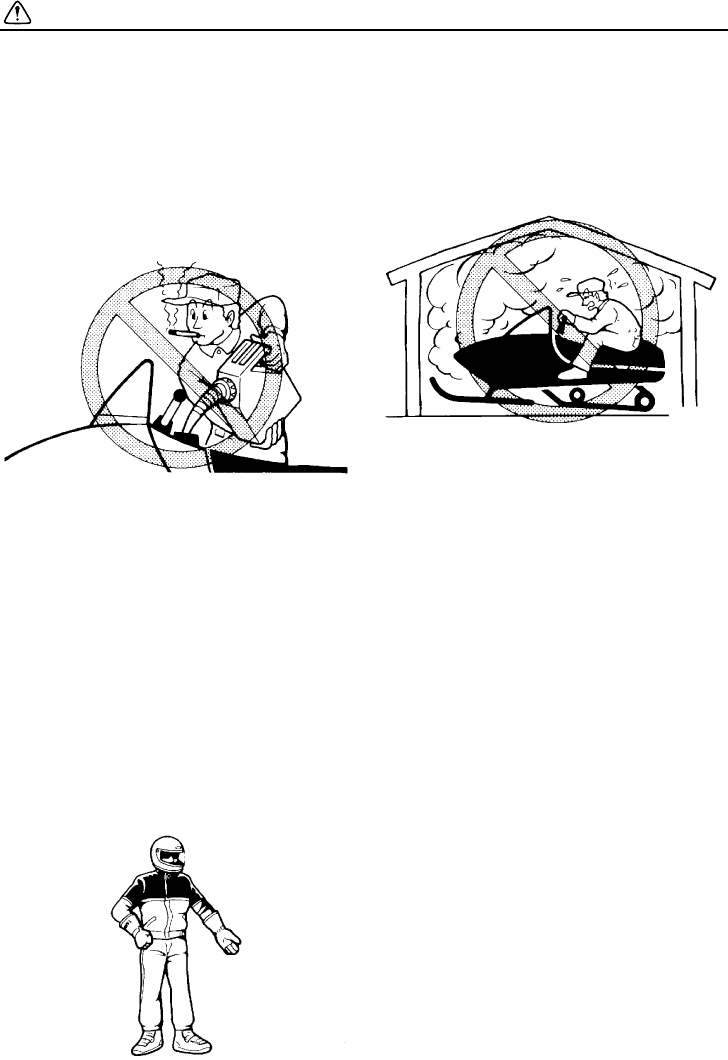
Safety information
2
● Fill the fuel tank outdoors with extreme
care. Never remove the fuel cap in-
doors. Never fill the fuel tank indoors.
● Never refuel while smoking or in the vi-
cinity of an open flame.
● Make sure that the fuel tank cap is
closed securely after refueling. Wipe
up any spilled fuel immediately.
9. If you swallow some gasoline, inhale a lot
of gasoline vapor, or get some gasoline
into your eyes, see your doctor immedi-
ately. If any gasoline spills on your skin or
clothing, immediately wash your skin with
soap and water, and change your
clothes.
10. Wear protective clothing. Wear an ap-
proved helmet, and a face shield or gog-
gles. Also, wear a good quality
snowmobile suit, boots, and a pair of
gloves or mittens that will permit use of
your thumbs and fingers for operation of
the controls.
Operation
1. Do not run the engine indoors, except
when starting the engine to transport the
snowmobile in or out of the building.
Open the outside doors; exhaust fumes
are dangerous.
2. Be careful where you ride. There may be
obstacles hidden beneath the snow. Stay
on established trails to minimize your ex-
posure to hazards. Ride slowly and cau-
tiously when you ride off of established
trails. Hitting a rock or stump, or running
into wires could cause an accident and
injury.
3. This snowmobile is not designed for use
on surfaces other than snow or ice. Use
on dirt, sand, grass, rocks, or bare pave-
ment may cause loss of control and may
damage the snowmobile.
4. Avoid operating on glare ice, or on snow
which has a lot of dirt or sand mixed in.
Operation under such conditions will
damage or result in rapid wear of ski run-
ners, drive track, slide runners, and drive
sprockets.
5. Always ride with other snowmobilers
when going on a ride. You may need help
if you run out of fuel, have an accident, or
damage your snowmobile.
6. Many surfaces such as ice and hard-
packed snow require much longer stop-
ping distances. Be alert, plan ahead and
U8GL10E0.book Page 2 Friday, May 18, 2007 3:17 PM


















